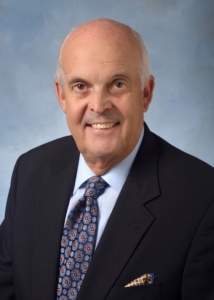By Gary Schons, BB&K.
This week, the U.S. Supreme Court overturned the federal bribery convictions of former Virginia Gov. Bob McDonnell. While politicians and public officials from Washington, D.C. to Juneau, Alaska might be breathing a sigh of relief, the implications of the opinion for public officials in California are far less reassuring.
First the facts: McDonnell all but solicited and eagerly accepted more than $175,000 in gifts, including a $55,000 loan, a $20,000 shopping spree in Manhattan, lavish meals and $15,000 in cash, from Virginia businessman Jonnie Williams. Williams wanted McDonnell help him push his diet supplement product by convincing Virginia’s public universities to study the product. McDonnell contacted these school officials, although no studies materialized. McDonnell arranged meetings between Williams and state officials and hosted a lunch party at the Governor’s Mansion. At that lunch, McDonnell touted the product and once produced a bottle of the product at a meeting with the head of the state employee health plan and suggested that state employees start taking the supplement.
The receipt of the “quid” — the gifts — was undeniable. But what McDonnell challenged was the existence of the “quo”— whether what he did amounted to “official action” within the ambit of the federal bribery statute (18 U.S.C. §201). In essence, McDonnell argued that even “exchanging” (the “pro”) meetings, promotion and contacts with state university officials for cash, on its own, did not constitute bribery.
The Court overturned McDonnell’s convictions on the basis that the trial court provided erroneous jury instructions on the meaning of what constitutes an “official act” in the federal bribery statute. The Court held that “official act” is a decision or action on a “question, matter, cause, suit, proceeding or controversy.” The Court held those matters must also be something specific and focused, that is “pending” or “may by law be brought” before a public official.
The Court held that the possible state university research, the allocation of state grant money to fund research of the diet supplement, and whether the state health insurance plan would cover the supplement could be “questions” or “matters” arising from the Williams-McDonnell relationship.
To qualify as an “official act,” the Court held, the public official must make a decision or take an action on that “question” or “matter,” or agree to do so. Further, that decision or action may include using his official position to exert pressure on another official to perform an “official act,” or to advise another official, knowing or intending that such advice will form the basis for an “official act” by another official.
So far, so good for the government’s position — as it appears that is precisely what McDonnell did.
But where the Court found fault was that merely “setting up a meeting, talking to another official, or organizing an event [or agreeing to do so]” — a phrase Chief Justice John Roberts repeated like a mantra in his opinion — does not fit that definition of “official act.” Thus, the jury instruction, in suggesting otherwise, was erroneous and the convictions could not stand.
Roberts explained that, if such activity was swept into the federal bribery statute, it would “cast a pall” on “the basic compact underlying representative government” — that is to say, how business gets done in politics and government.
So, why is this decision of lesser import to California public officials? The simple reason is that under California’s Political Reform Act (Government Code section 87100 et seq.) had McDonnell been an official in California, the mere receipt of the lavish gifts from Williams would have been their own crimes because they grossly exceeded the state’s gift limits. Further, under that Act, those gifts would have to be accurately, timely and publicly reported to the FPPC, under the threat of felony prosecution for perjury, even if that report exposed the gift limit violations. It is also possible that McDonnell’s contacts with other state officials on Williams’ behalf could be viewed as acts seeking to influence a governmental decision in which McDonnell had a financial interest (the gifts) under the Act.
[divider] [/divider]
 As head of Best Best & Krieger’s Public Policy and Ethics Compliance practice, Gary W. Schons counsels public agencies, officials and private businesses who wish to promote public confidence in their decision-making processes by assuring that official conduct is above reproach. Prior to joining BB&K Law, Gary served as a deputy district attorney and senior advisor for Law & Policy in the San Diego County District Attorney’s Office. In this role, he advised the District Attorney and her executive staff on legal, public integrity, legislative and policy issues and provided legal assistance to all 300 deputy district attorneys in the office. Gary is an active member of the California District Attorneys Association, lecturing and authoring articles for the association. He is also active in the San Diego County Bar Association, where he has served on the Judicial Elections Evaluation Committee. He can be reached by email, gary.schons@bbklaw.com or by phone, (619) 525-1348.
As head of Best Best & Krieger’s Public Policy and Ethics Compliance practice, Gary W. Schons counsels public agencies, officials and private businesses who wish to promote public confidence in their decision-making processes by assuring that official conduct is above reproach. Prior to joining BB&K Law, Gary served as a deputy district attorney and senior advisor for Law & Policy in the San Diego County District Attorney’s Office. In this role, he advised the District Attorney and her executive staff on legal, public integrity, legislative and policy issues and provided legal assistance to all 300 deputy district attorneys in the office. Gary is an active member of the California District Attorneys Association, lecturing and authoring articles for the association. He is also active in the San Diego County Bar Association, where he has served on the Judicial Elections Evaluation Committee. He can be reached by email, gary.schons@bbklaw.com or by phone, (619) 525-1348.





